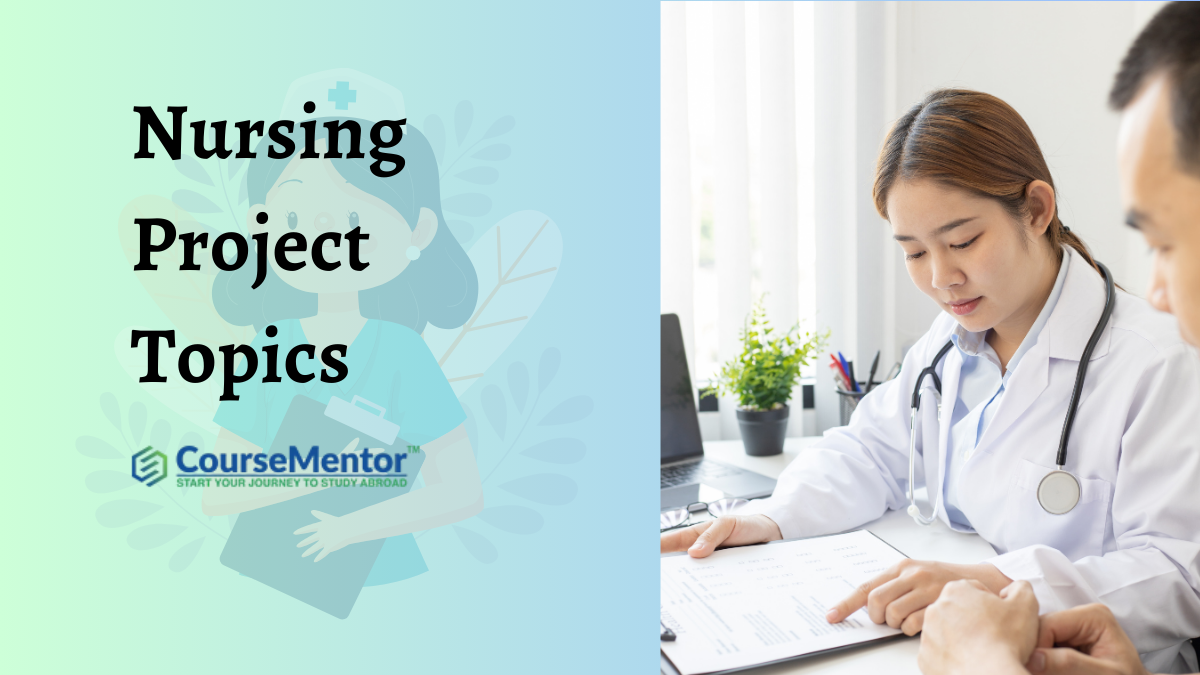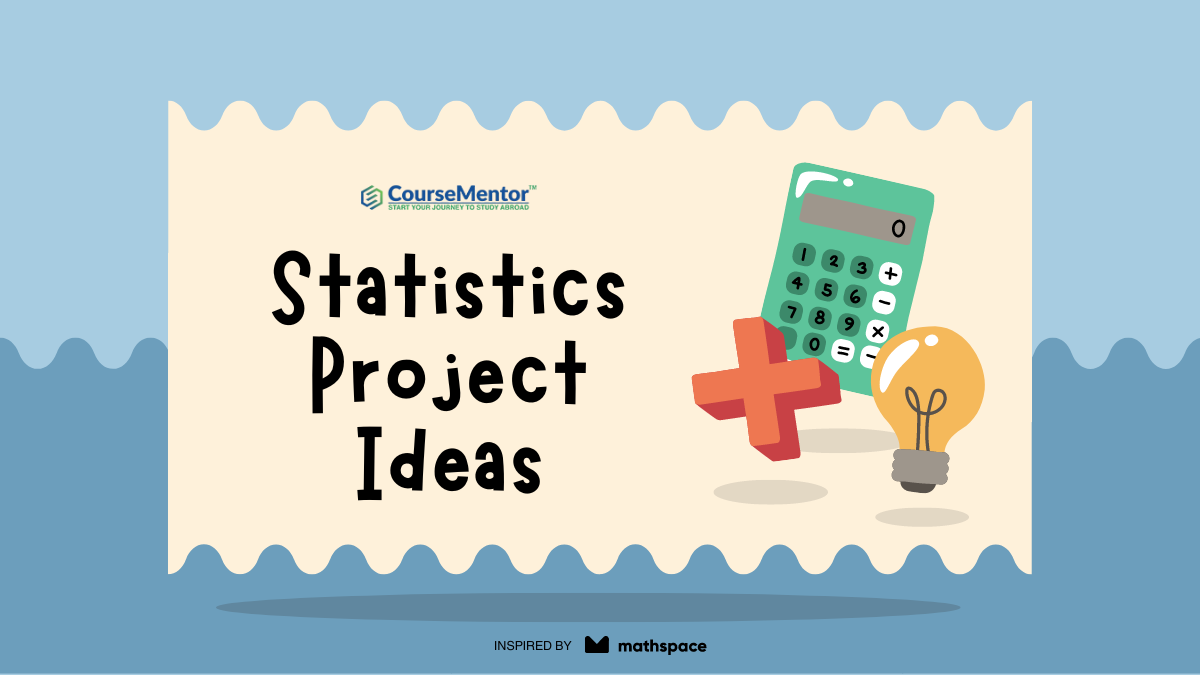In the ever-changing field of nursing, keeping up with the newest trends and methods is really important. One way nurses can do this is by engaging in nursing projects. But what exactly are nursing project topics, and why are they important?
In this blog, we’ll delve into the realm of nursing project topics, exploring their significance, categories, factors to consider when choosing them, examples, steps in developing them, and more.
Whether you’ve been a nurse for a long time or you’re just beginning your career, this guide will offer helpful tips about this important part of nursing.
| Also Read: What Is Scope And Limitation In Research? |
What are Nursing Project Topics?
Nursing project topics are specific areas of interest or focus within the field of nursing that nurses explore through research, practice improvement initiatives, or educational endeavors. These topics encompass a wide range of areas, from clinical practice to community health, nursing education, leadership, and management.
Importance of Choosing the Right Nursing Project Topic
Selecting the right nursing project topic is crucial for several reasons.
- Firstly, it allows nurses to address pertinent issues within their practice areas, contributing to improvements in patient care, community health, or nursing education.
- Secondly, it enables nurses to stay engaged and passionate about their work by exploring topics that resonate with their interests and goals.
- Finally, choosing the right nursing project topic can enhance professional growth and development, providing opportunities for learning, skill-building, and leadership.
100+ Revised Nursing Project Topics: Category Wise
Clinical Nursing Projects
- Implementing an Interdisciplinary Approach to Pain Management in Acute Care Settings
- Assessing the Impact of Nurse-to-Patient Ratios on Patient Outcomes
- Utilizing Telemedicine for Remote Patient Monitoring in Chronic Disease Management
- Enhancing Medication Reconciliation Processes to Improve Patient Safety
- Evaluating the Effectiveness of Nurse-led Discharge Education Programs
- Implementing Evidence-Based Practice Guidelines for Pressure Ulcer Prevention
- Assessing the Efficacy of Nursing Interventions in Managing Postpartum Depression
- Utilizing Technology to Enhance Communication Among Healthcare Team Members
- Improving Nurse Documentation Practices to Ensure Accuracy and Compliance
- Enhancing Cultural Competence in Nursing Practice Through Education and Training
- Implementing a Comprehensive Pain Management Protocol for Palliative Care Patients
- Assessing the Effectiveness of Nursing Interventions in Managing Substance Use Disorders
- Utilizing Telehealth Services to Provide Remote Wound Care Consultations
- Enhancing Patient Education Materials to Improve Health Literacy
- Evaluating the Impact of Nurse-led Chronic Disease Management Programs
- Implementing a Fall Prevention Initiative in Long-term Care Facilities
- Assessing the Efficacy of Integrative Therapies in Pain Management
- Utilizing Point-of-Care Testing to Improve Timely Diagnosis and Treatment
- Enhancing End-of-Life Care Through Advanced Care Planning Initiatives
- Evaluating the Use of Artificial Intelligence in Clinical Decision Support Systems
- Implementing Mindfulness-Based Stress Reduction Programs for Healthcare Providers
- Assessing the Effectiveness of Nurse-led Smoking Cessation Counseling
- Utilizing Telepsychiatry Services to Improve Access to Mental Health Care
- Enhancing Patient Engagement Through Shared Decision-Making Initiatives
- Evaluating the Impact of Music Therapy on Pain Management in Pediatric Patients
- Implementing Peer Support Programs for Nurses Dealing with Compassion Fatigue
- Assessing the Efficacy of Integrating Complementary and Alternative Medicine Modalities
- Utilizing Nursing Informatics to Enhance Medication Adherence in Chronic Disease Management
- Enhancing Patient Satisfaction Through Personalized Care Plans
- Evaluating the Use of Mobile Health Applications for Self-Management of Chronic Conditions
Community Health Nursing Projects
- Conducting a Community Health Needs Assessment to Identify Priority Areas
- Developing a School-Based Health Promotion Program for Adolescent Mental Health
- Implementing a Diabetes Prevention Program in Underserved Communities
- Assessing the Impact of Environmental Factors on Community Health Outcomes
- Promoting Vaccination Awareness and Education in High-Risk Populations
- Implementing Community-Based Interventions to Address Food Insecurity
- Evaluating the Effectiveness of Teen Pregnancy Prevention Programs
- Establishing Partnerships with Local Organizations to Address Substance Abuse Issues
- Enhancing Access to Healthcare Services for Homeless Populations Through Mobile Clinics
- Conducting Health Screenings and Education Campaigns in Rural Areas
- Developing Culturally Tailored Health Promotion Programs for Immigrant Communities
- Implementing Mental Health First Aid Training in Community Settings
- Assessing the Impact of Community Gardens on Nutrition and Food Security
- Promoting Safe Sleep Practices to Reduce Sudden Infant Death Syndrome (SIDS)
- Evaluating the Effectiveness of School-Based Health Centers in Improving Access to Care
- Implementing Smoking Cessation Programs in Workplaces and Public Spaces
- Developing Disaster Preparedness Plans for Vulnerable Populations
- Assessing the Health Needs of Aging Adults in Assisted Living Facilities
- Encouraging Kids to Move More and Eat Healthier
- Checking How Community Health Helpers Help People Get Medical Care
- Developing Culturally Sensitive Sexual Health Education Programs for Adolescents
- Implementing Community-Based Screening Programs for Infectious Diseases
- Assessing the Impact of Environmental Health Interventions on Asthma Rates
- Promoting Mental Health Awareness Through Community Workshops and Events
- Evaluating the Effectiveness of Peer Support Groups for Individuals with Substance Use Disorders
- Implementing Nutrition Education Programs in Schools to Combat Childhood Obesity
- Developing Strategies to Address Social Determinants of Health in Underserved Communities
- Assessing the Impact of Housing Stability Programs on Health Outcomes
- Promoting Health Equity Through Language Access Services for Limited English Proficiency Populations
- Evaluating the Effectiveness of Community Health Worker Programs in Reducing Health Disparities
Nursing Education Projects
- Integrating Simulation-Based Learning into Nursing Curriculum
- Developing Online Modules for Continuing Education in Nursing
- Assessing the Impact of Peer Tutoring on Student Learning Outcomes
- Implementing Interprofessional Education Initiatives to Foster Collaboration
- Enhancing Clinical Placement Experiences for Nursing Students
- Evaluating the Effectiveness of Preceptorship Programs in Clinical Settings
- Utilizing Gamification Strategies to Enhance Student Engagement
- Developing Cultural Competency Training for Nursing Faculty and Students
- Implementing Reflective Practice Exercises to Promote Critical Thinking Skills
- Assessing the Use of Social Media in Nursing Education and Professional Development
- Developing Interprofessional Simulation Exercises for Team-Based Learning
- Assessing the Impact of Online Learning Platforms on Nursing Student Engagement
- Implementing Peer Mentoring Programs to Support Underrepresented Minority Students
- Enhancing Cultural Competency Through Immersive Experiential Learning Opportunities
- Evaluating the Use of Virtual Patient Cases for Clinical Reasoning Development
- Developing Interdisciplinary Simulation Scenarios for Team Training
- Assessing the Impact of Virtual Reality Simulation on Nursing Skills Acquisition
- Implementing Peer Feedback Mechanisms to Enhance Clinical Competence
- Enhancing Cultural Sensitivity Through Global Health Experiences
- Evaluating the Effectiveness of High-Fidelity Simulation in Nursing Education
- Implementing Quality Improvement Projects in Clinical Practice Settings
- Developing Competency-Based Education Programs for Specialty Areas
- Assessing the Use of E-Portfolios for Student Assessment and Reflection
- Promoting Lifelong Learning Through Continuing Professional Development
- Evaluating the Impact of Preceptor Training Programs on Clinical Teaching Quality
Nursing Leadership and Management Projects
- Implementing a Nurse Residency Program to Support New Graduates
- Developing Leadership Skills Through Mentoring and Coaching Programs
- Assessing the Impact of Transformational Leadership on Nurse Satisfaction
- Enhancing Nurse Communication Skills Through Training Workshops
- Implementing Shared Governance Models to Empower Nursing Staff
- Evaluating the Effectiveness of Team-Based Care Models in Healthcare Organizations
- Developing Strategies to Address Nurse Burnout and Improve Retention
- Implementing Lean Principles to Streamline Workflow and Reduce Waste
- Assessing the Impact of Staffing Models on Patient Safety and Satisfaction
- Promoting Work-Life Balance Through Flexible Scheduling Options
- Implementing Lean Six Sigma Methodologies to Improve Healthcare Processes
- Developing Nurse-Led Transitional Care Programs for Patients with Complex Needs
- Assessing the Impact of Nurse Staffing Mix on Patient Outcomes
- Promoting Diversity and Inclusion in Nursing Leadership Positions
- Evaluating the Effectiveness of Nurse Manager Leadership Development Programs
- Implementing Quality Improvement Initiatives to Reduce Hospital Readmissions
- Developing Strategies for Conflict Resolution and Team Building in Healthcare Settings
- Assessing the Role of Nursing Informatics in Healthcare Decision-Making
- Promoting Ethical Decision-Making and Advocacy in Nursing Practice
- Evaluating the Implementation of Evidence-Based Practice Guidelines in Clinical Settings
Steps in Developing Nursing Project Topics
Developing a nursing project topic involves several key steps:
- Identify a Research Gap or Practice Issue: Start by identifying an area of interest or concern within your practice setting that warrants further investigation.
- Read up on what others have already written about your topic. This helps you see what we already know and find out where there’s more to learn or do better.
- Formulate a Research Question or Project Objective: Based on your review of the literature, formulate a clear research question or project objective that guides your study.
- Design the Project Methodology and Plan: Develop a detailed plan for how you will conduct your project, including the study design, data collection methods, and analysis techniques.
- Obtain Necessary Approvals and Permissions: Seek approval from relevant stakeholders, such as institutional review boards or ethics committees, and obtain any necessary permissions to conduct your project.
- Implement the Project and Collect Data: Execute your project according to the established plan, collecting data and monitoring progress along the way.
- Analyze Data and Draw Conclusions: Once data collection is complete, analyze your findings and draw conclusions based on the results.
- Communicate Findings: Finally, communicate your findings through presentations, publications, or other channels to share your insights with the broader nursing community.
Conclusion
Nursing project topics offer valuable opportunities for nurses to engage in research, practice improvement, and educational endeavors that contribute to the advancement of the profession.
By selecting the right topic, nurses can address important issues, enhance their skills and knowledge, and make meaningful contributions to nursing practice and scholarship. Whether you’re interested in clinical care, community health, education, or leadership, there’s a wealth of exciting nursing project topics waiting to be explored.
So go ahead, choose a topic that inspires you, and embark on your journey to making a difference in the world of nursing.





